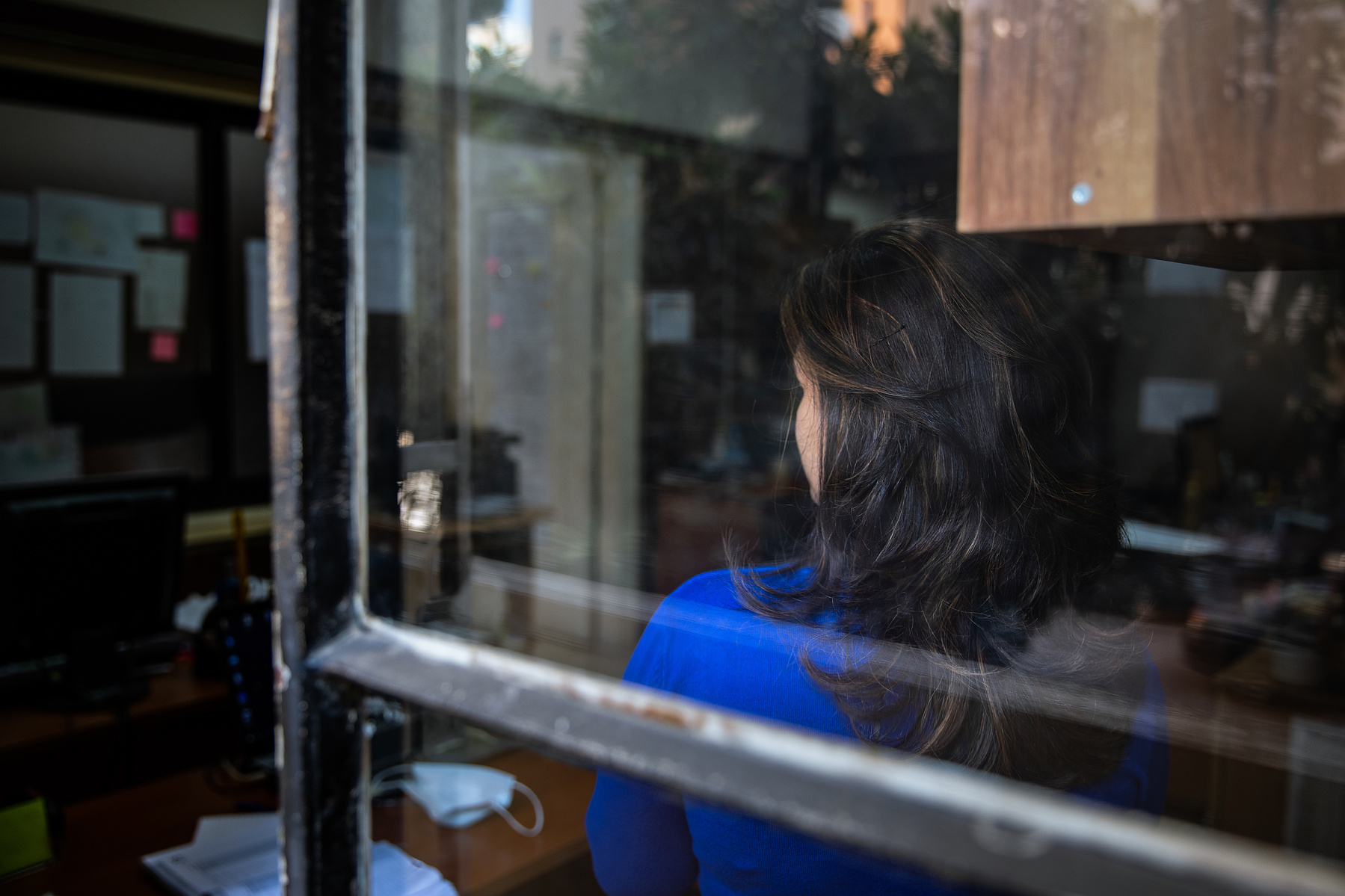
Marleine, at her office in Beirut, where she works as a social worker. She had wanted to give birth naturally, but then her doctor pushed for a C-Section, despite her mentioning her birth preferences during pre-natal visits. At 39 weeks Marleine received a phone call from her obstetrician at a private hospital asking her to come in. “They induced me for labor,” she said. Every 15 minutes, a nurse would enter to perform a cervical check. Three hours later, she had a C-section at the doctor’s insistence. “I was uncomfortable, I started crying,” she said. “It all happened so fast, I didn’t feel supported to go for natural birth.”
Obstetric Violence in Lebanon
Scarce resources for vaginal birth and forced C-sections dominate maternal care in Lebanon.
A Caesarean section (C-section), or caesarean delivery, is a surgical procedure where babies are delivered through an incision in the mother's abdomen.
Lebanon ranks among the top 10 countries for C-section births globally. In 2018, 47.8% of births were done via C-section, according to WHO. This staggering rate - almost half of all births - suggests that many C-sections performed are not medically necessary. Roughly 80 percent of births (on a global average) are uncomplicated and can be handled by a midwife, while the remaining 20 percent may require an obstetrician, said Tamar Kabakian, associate professor at the American University of Beirut whose research focuses on maternal health. “But that’s not the way care is organized in Lebanon."
Advocates of vaginal, natural birth speculate that financial incentives are behind Lebanon’s high C-section rate - hospitals are able to charge more for a C-section as it is a surgery. In a healthcare system dominated by private providers, doctors push patients into undergoing C-sections, even when they are not medically necessary. This serves profit margins rather than patients and is a form of obstetric violence.
The MSF Birth Center, located at Rafik Hariri University Hospital (RHUH) in Beirut adopts a midwife-led approach and is one of the few places in Lebanon where pregnant people are encouraged to have natural birth. MSF also runs a maternity clinic in the Burj al-Barajneh refugee camp, where patients can receive pre and post-natal care.
“We encourage women to deliver normally, without interventions like [C-sections], episiotomies, or epidurals because we provide non-medical pain relief,” said Elyse Ibrahim, a midwife with MSF.
Natural birth has many benefits over C-section for mothers and babies, including faster recuperation time for the mother and aiding a baby’s development of beneficial skin flora from passage through the birth canal.
Photographed for MSF and Women’s Media Center.
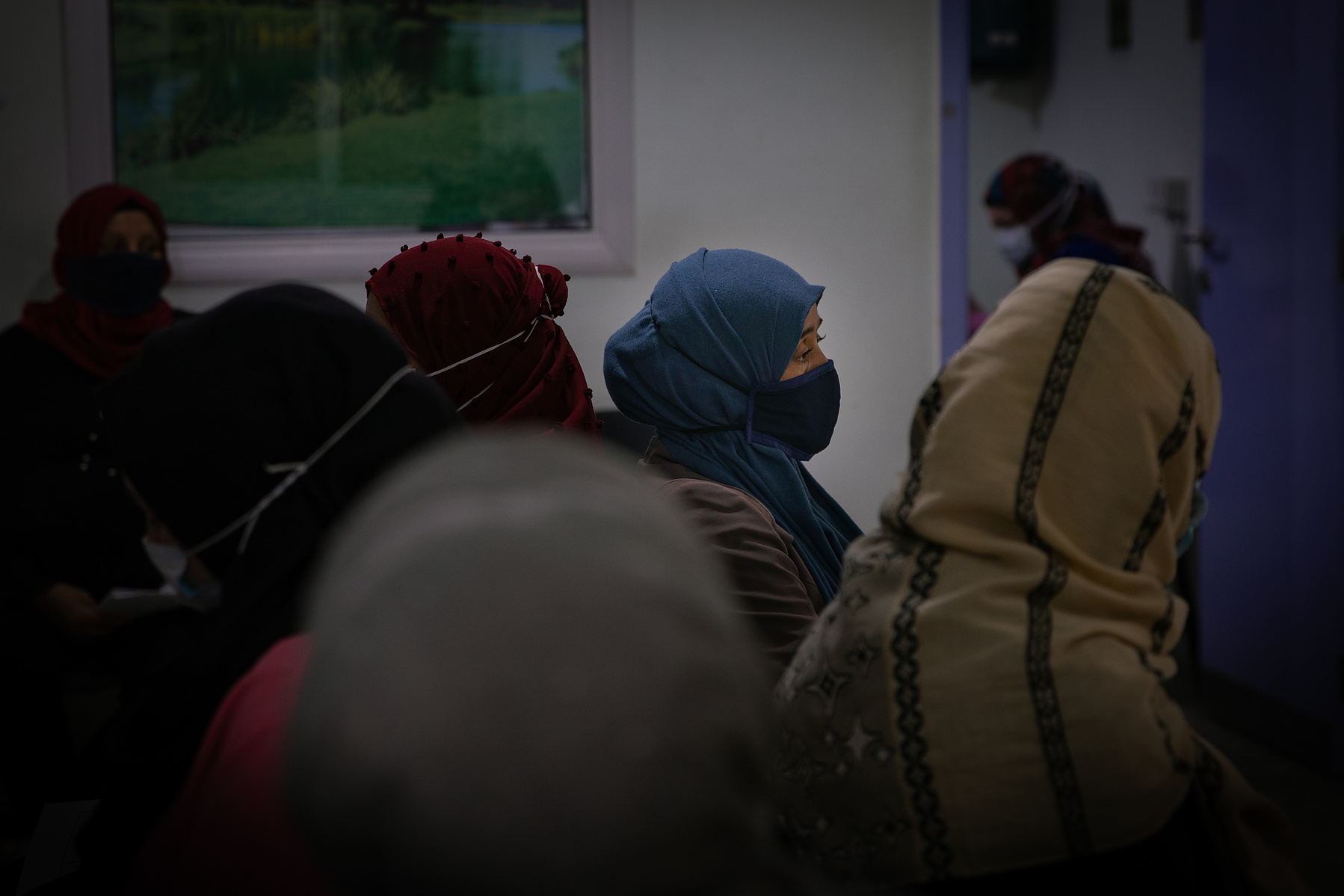
The waiting room at a Médecins Sans Frontières (MSF)-run maternity clinic in Burj al Barajneh refugee camp. At this clinic, patients are encouraged to pursue natural, vaginal births. MSF is one of the few health providers in Lebanon taking a non-medicalized approach to birthing.
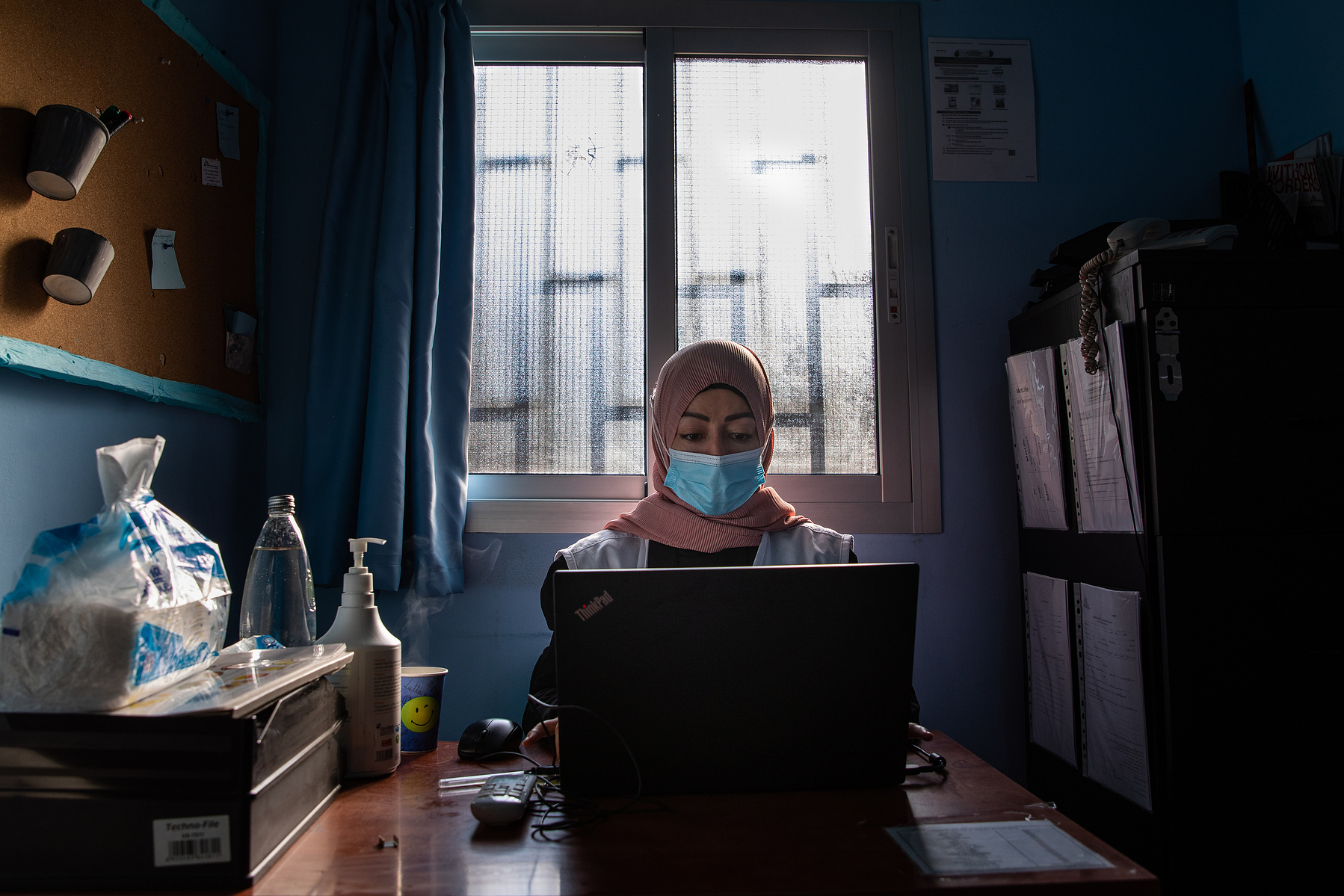
Mariam Ali, Health Promoter (HP) sits at her desk in MSF's clinic in Burj Al Barajneh. As an HP Mariam gives presentations about public health topics and talks through family planning options with women in the refugee camp.
Once a woman comes to the MSF center for a pre-natal appointment, staff like Mariam guide patients towards healthy pregnancy resources, with the aim of vaginal birth.
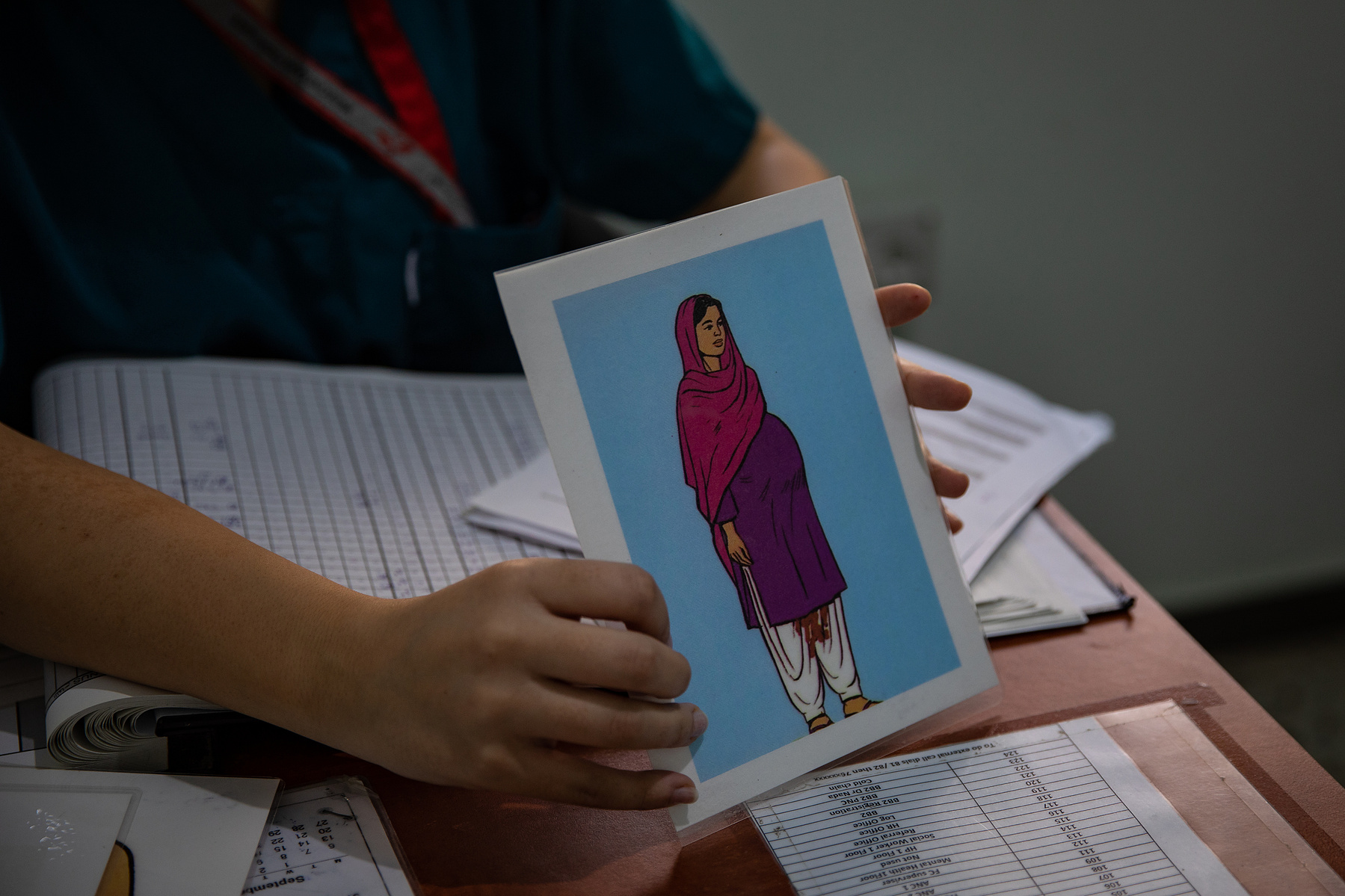
Elyse Ibrahim, a midwife who works in Burj Al Barajneh, uses diagrams to explain to a patient different risk scenarios for when it is necessary for pregnant persons to go to the hospital. Patients with vaginal bleeding, water breaking, swollen feet and severe illness are admitted to a hospital rather than the MSF midwife center.
In the event of an emergency, patients are still referred to hospitals for a C-section, but vaginal birth is always attempted first.
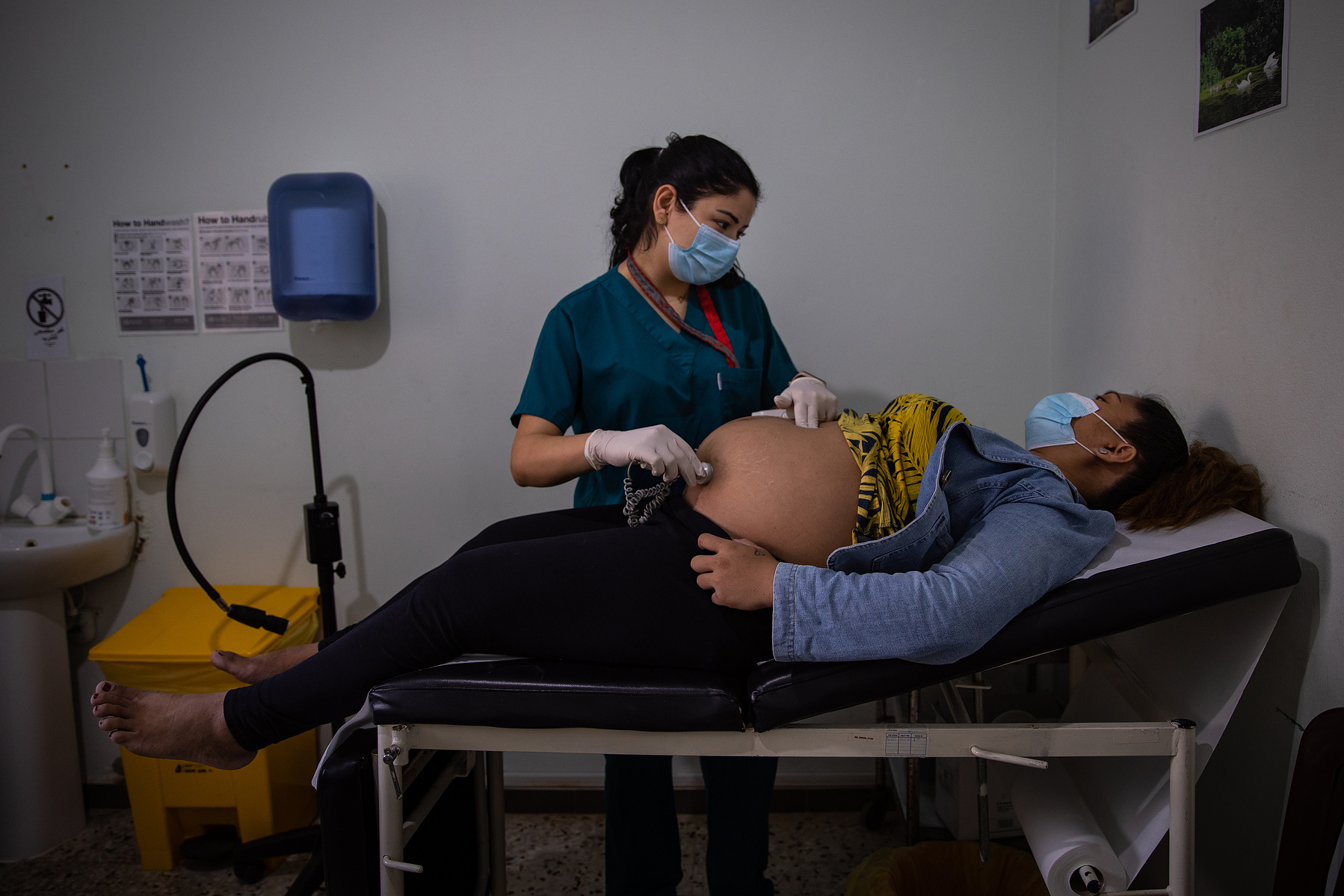
Arlene, 28, listens to her baby's heartbeat during her final pre-natal checkup. She is 9 months and two days pregnant and this is her second pregnancy. Arlene's first child was delivered naturally, and she hopes that the second birth - coming any day now - is done via vaginal delivery as well. Arlene is from the Philippines and has been living in Lebanon for 9 years.
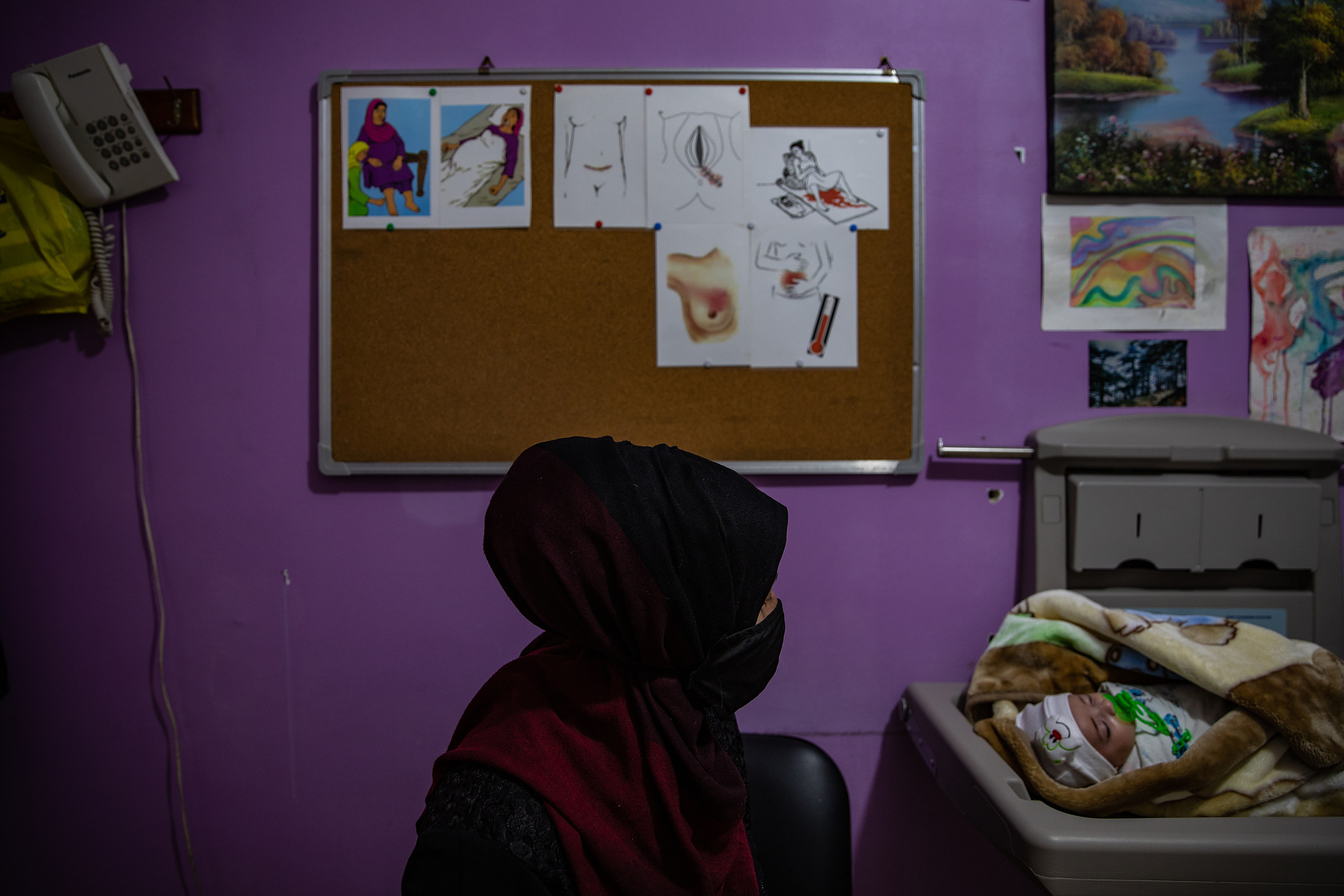
Arifa, 29 years old, attends a post-natal visit with her baby. 40 days prior to the appointment she gave birth naturally.
Most women who visit the midwife center in Burj al Barajneh don't need to be convinced to give both naturally - they already prefer not to undergo surgery (e.g. delivery via C-section), which entails a more intensive recovery process.
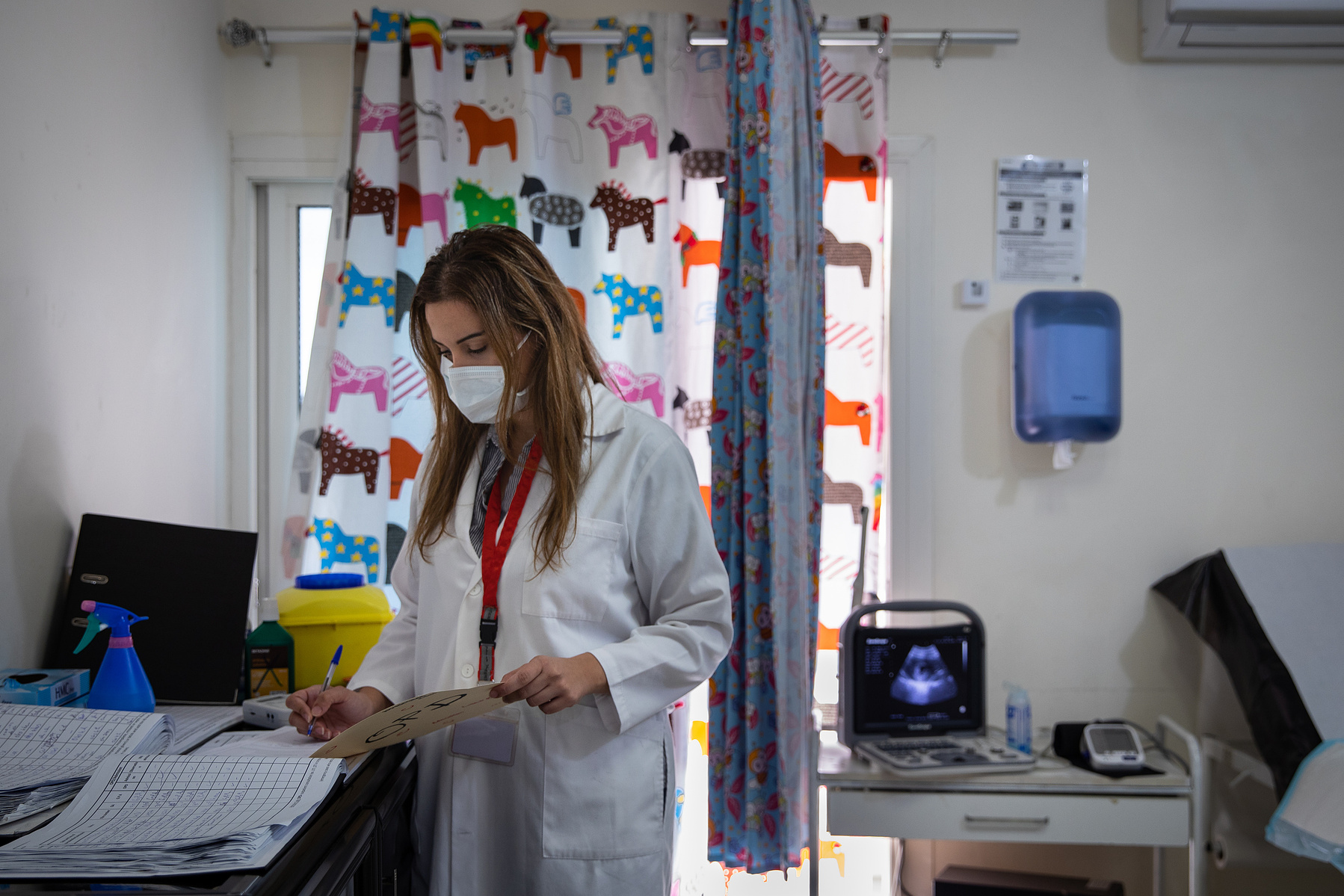
Dr. Christine Al Kady, Obstetrician at the Médecins Sans Frontières (MSF) Birth Center at Rafik Hariri University Hospital (RHUH).
Here, high-risk patients are monitored during birth and ordinary patients are supported to deliver babies naturally, only being referred for a C-section in the event of a medical emergency.
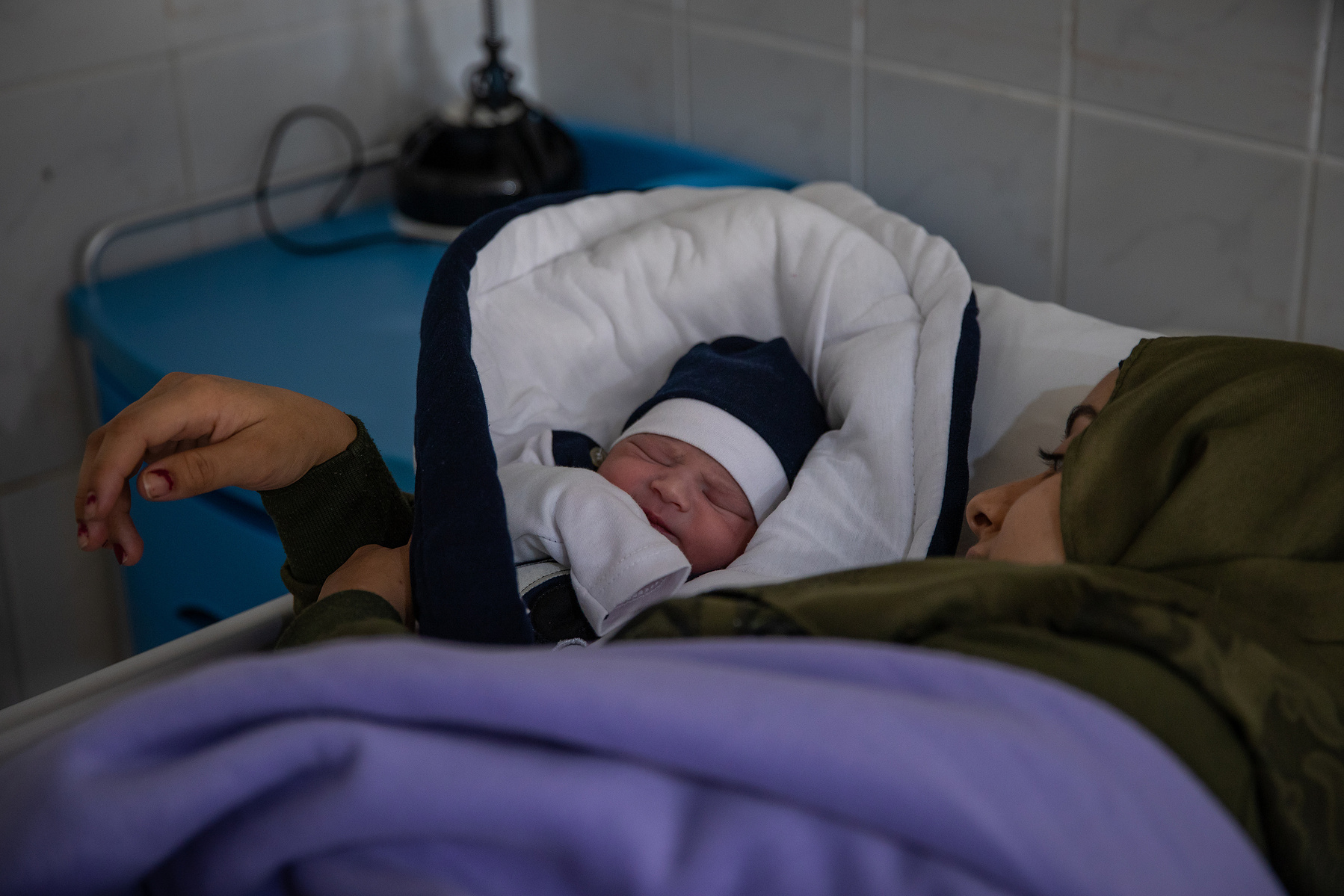
Sultana (18) holds her healthy baby boy Adam, a few hours after giving birth naturally at the Médecins Sans Frontières (MSF) Birth Center at Rafik Hariri University Hospital (RHUH).
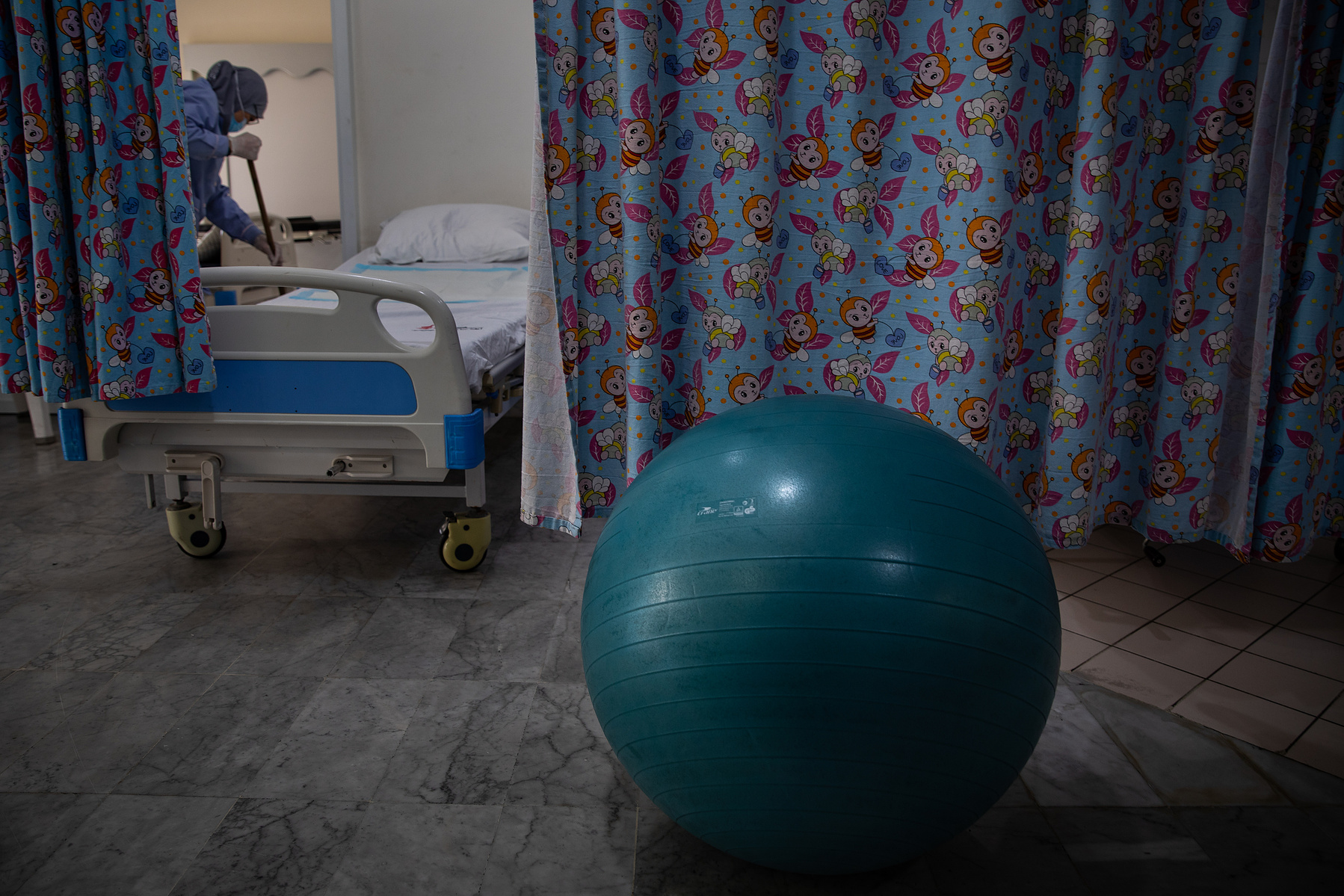
A birthing ball in the labor room at Rafic Hariri University Hospital. Exercising on a birthing ball, as well as breathing techniques, having a hot shower and receiving a massage are non-medical methods of pain relief during childbirth.
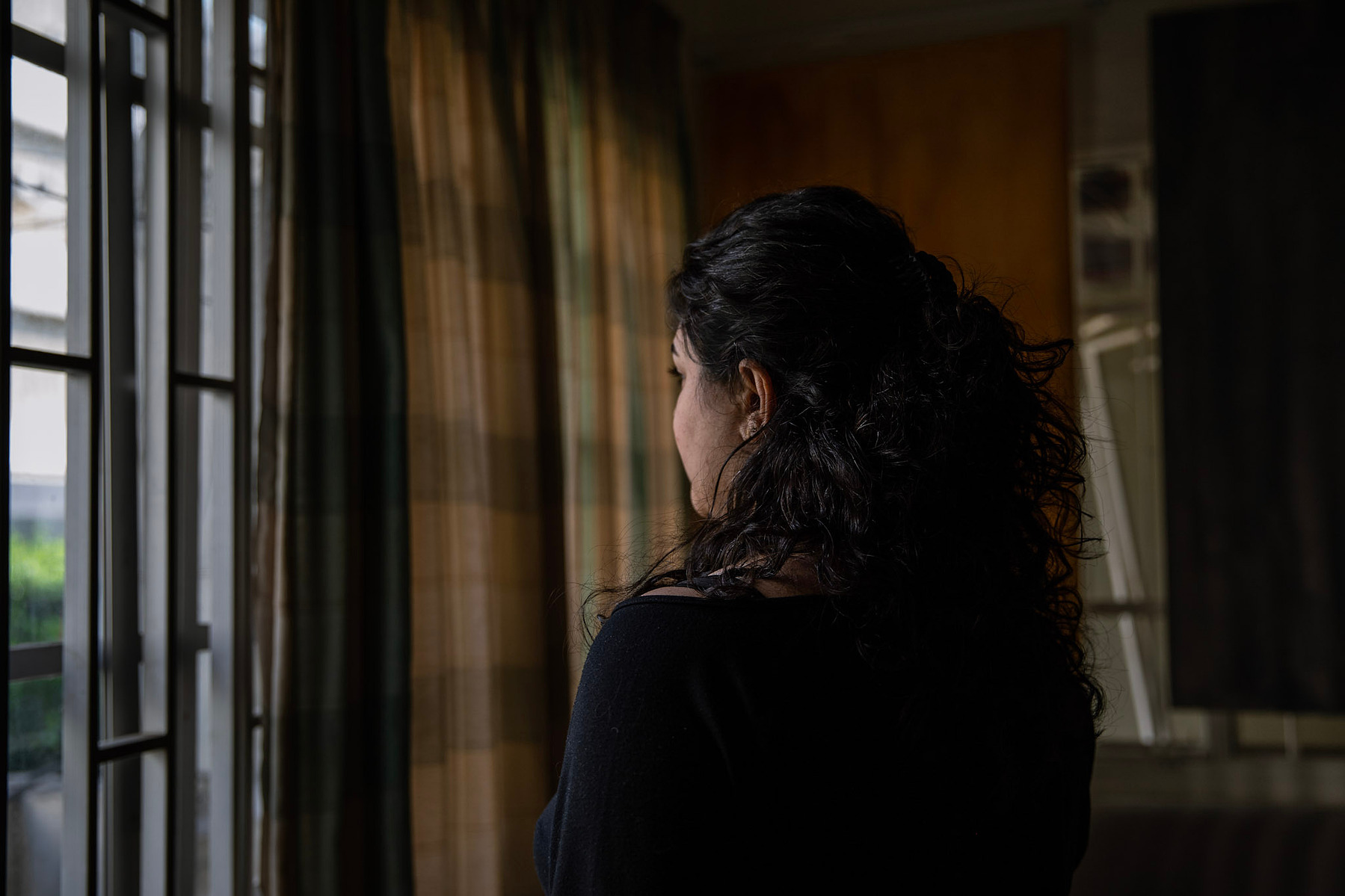
Celine at her office in Beirut, where part of her work deals with female empowerment. Despite this, when Celine's doctor recommended a C-section during labor, she felt powerless to argue. As she looked out the window Celine wondered aloud that if she, with all her empowerment trainings, couldn't speak up during her birth, what about those who aren't regularly told their voice matters?